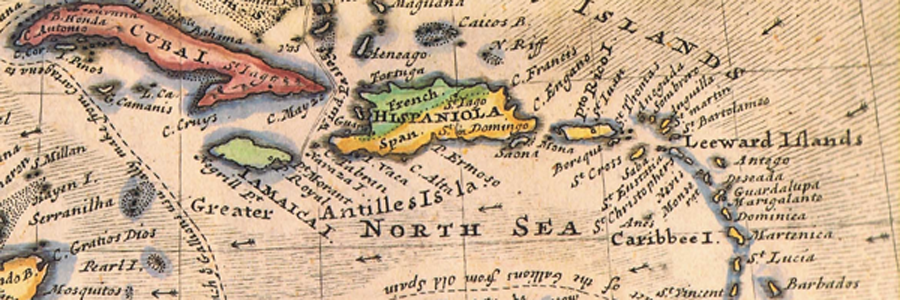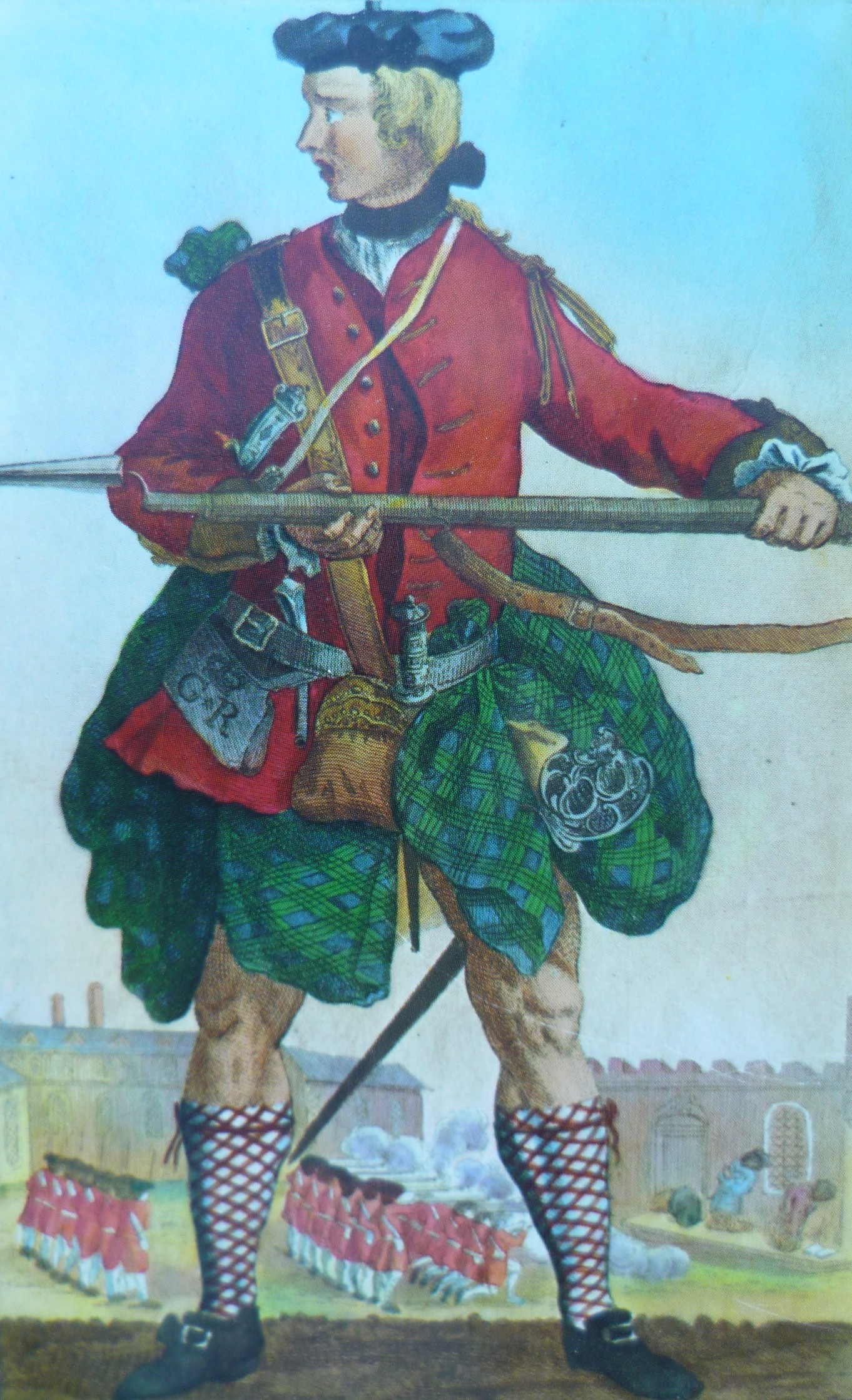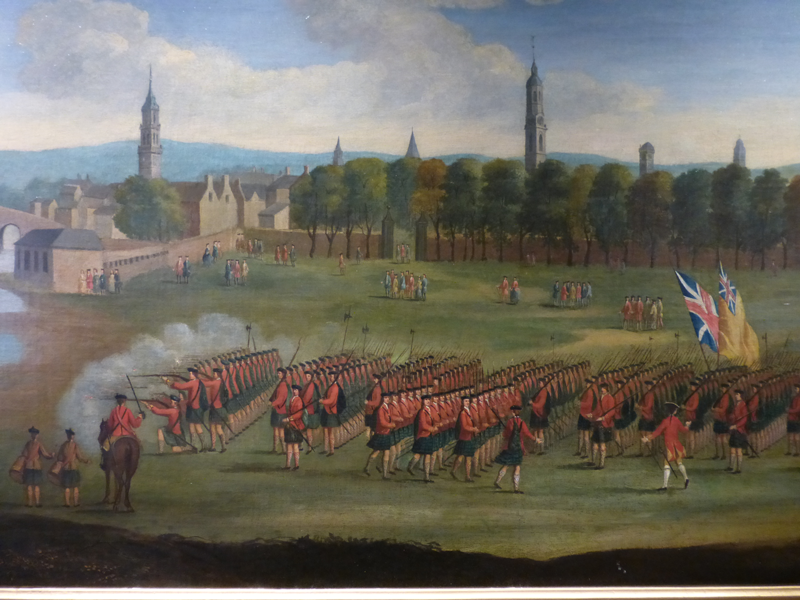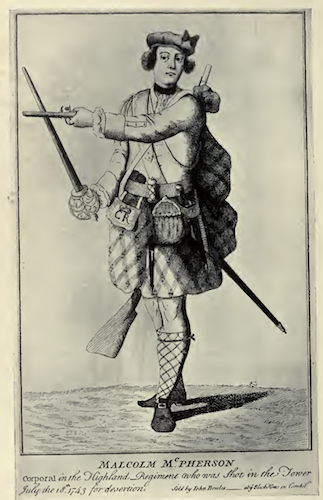The Dreaded West Indies Posting


Soldier of the Black Watch c.1740, colorized {{PD-US}}
When Malcolm McPherson joined the Black Watch in 1735, he and his fellow enlistees “thought themselves destined to serve exclusively . . . in the Highlands.”1
They had no expectation they’d do duty in the West Indies. If they had, it’s unlikely they’d have enlisted. Most soldiers dreaded a West Indies posting—so many of them never returned.
It’s estimated that over half of the troops serving the islands in the latter part of the 18th century died before leaving. Some called the region a mass grave of British soldiers.2
Some called the region a mass grave of British soldier.
The Death Toll
The soldiers stationed in the West Indies had a greater chance of dying from disease than they did of dying by enemy fire. Impure water supplies carried typhoid fever, dysentery, and cholera. Insects carried yellow fever, malaria, and typhus.
These diseases weren’t new to the tropics, but the inhabitants were. The soldiers, the planters, and the enslaved carried no immunity; all were susceptible.
Ignorant of what caused a disease, doctors could do no more than treat the symptoms. Unfortunately, their treatment often only aggravated the complaints, or as Rudyard Kipling wrote: “half their remedies cured you dead.”3
Another culprit was alcohol abuse. Island rum was cheap, plentiful, and easily obtained–all qualities that led to excessive use. While new rum (it’s been likened to moonshine) was known to sometimes have ill effects, many regarded properly distilled rum as safe in any quantity.
Soldiers’ rations included alcohol. Often they were allocated an extra portion before a battle to boost their courage, or after a battle to calm their panic.
Island doctors, both military and civilian, tended to prescribe rum as a curative. It wasn’t.
One historian recorded that his grandfather, serving a term in Jamaica, was measured by an individual who seemed “particularly interested in his height and build.” The individual was a forward-thinking undertaker, for “burial of course must follow death very speedily in the tropics.”12
Decoys and Deception
Britain’s empire was rapidly expanding in the 18th century, and it continually required soldiers to keep its territory–including the lethal West Indies–secure. So in 1743, His Majesty’s Government disregarded the Black Watch’s home-service terms of enlistment.
The men of McPherson’s regiment were lured outside their territory and ordered to march south. They were told King George had “never seen a Highland regiment,”4 and that he desired their presence in Musselburgh for his review.
Some in the regiment were suspicious. The Duchess of Atholl made note of their discontent, writing that “this affair of the highland Regiment marching has given great uneasiness to their officers and the 5 companies that passed thro this town . . . without beat of Drum or sound of pipe, those musicianers having Disserted . . .”5
Not all suspected treachery. One newspaper claimed that when marching through Edinburgh, the men made an “excellent appearance in their uniform and kilt.”6

Black Watch review at Glasgow Green c. 1758 {{PD-US}}
The king, however, was not in Musselburgh. Nor was he in Berwick-upon-Tweed, the next town scheduled for their review. In Berwick, the men were informed the king would review them in London. Thus they were decoyed from the Highlands to London.
King George wasn’t in London, either. He was in Flanders.7
“It had been whispered among them that they were to be sent to the West Indies.”
Mutiny in the Black Watch
By the time he reached London, Corporal Malcolm McPherson likely had had his fill of deception. Then he heard the whispers that his regiment was not even destined for Flanders, but for the West Indies. It’s not surprising that he believed them.
So rather than sail south, he and more than a hundred fellow soldiers took their chances and deserted. They got as far as Northamptonshire before they were captured and escorted under armed guard to the Tower of London.
During McPherson’s court martial for mutiny, his superior testified that he “had never heard any ill of the man [McPherson] before.”8 McPherson himself “pleaded the same story that the rest had done — that it had been whispered among them that they were to be sent to the West Indies.”9
It wasn’t a sufficient defense. The mutineers were sentenced to death, though the sentence was commuted for all but three. Corporal McPherson was one of those three.
The corporal was executed on July 18, 1743, on the Tower Parade.10
The men spared were shipped off to various postings, and thirty-eight of McPherson’s compatriots wound up serving in the dreaded West Indies.11
It’s impossible to know, but some of those thirty-eight may have wished they’d suffered Corporal McPherson’s quick fate instead.
The risk newcomers took living in 18th-century Jamaica is a recurrent theme in Voices Echo.
“I’ve lost three men in the last two months. Two more are down and out. I pray they’ll recover. God knows how I can build a regiment at this rate. A post in the West Indies is considered no more than a death sentence.” ~ Major Preston
1 H.D. Macwilliam, The Official Records of the Mutiny in the Black Watch : A London Incident of the Year 1743 (London: Forster Groom, 1910), xxvi.
2 Roger Norman Buckley, The British Army in the West Indies: Society and the Military in the Revolutionary Age (Florida: University Press of Florida, 1998), 276.
3 Ibid., 280.
4 Macwilliam, The Official Records of the Mutiny, xlii.
5 Leah Leneman, Living in Atholl : A Social History of the Estates, 1685-1785 (Edinburgh: Edinburgh University Press, 1986), 141.
6 Macwilliam, The Official Records of the Mutiny, xl.
7 Leneman, Living in Atholl, 141.
8 Macwilliam, The Official Records of the Mutiny, 179.
9 Ibid.
10 Ibid., 113.
11 Ibid., p 128.
12 Buckley, The British Army, 279.
